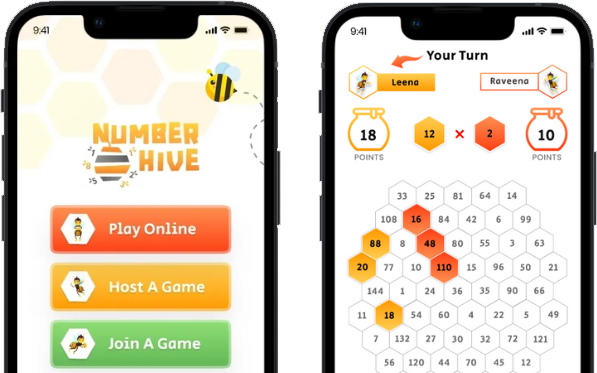
Quick guide: How (and why) to build a strong math foundation in your school.
The Importance of a Strong Math Foundation
As teachers, we understand the importance of building a strong math foundation for students to thrive academically. But did you know that the benefits extend far beyond mastering multiplication and division? A strong grasp of fundamental math skills provides students with advantages that influence not only their academic success but also their confidence, cognitive abilities, and overall mindset.
It’s urgent to consider the alternative. More than half of our students currently lack a strong math foundation, limiting their potential. These students miss out on opportunities that come with mathematical confidence, and the world loses future problem-solvers. Think about the impact on STEM careers and innovation.
Why Math Foundations Matter
Math curricula are sequential and cumulative. Each concept builds on the previous one, year after year. Missing a key concept—whether it’s fractions, basic operations, or algebra—leads to struggles with more advanced topics later on. This creates a compounding problem. Each year, students with gaps in their understanding fall further behind. Eventually, they feel overwhelmed, disengaged, and unmotivated because they lack the foundational knowledge needed to succeed. By addressing these gaps early on, we can prevent such challenges from growing.
Here are the benefits of building a strong math foundation and some practical strategies for achieving it.
1. Boosting Student Confidence
A strong math foundation boosts student confidence. When students become fluent in basic concepts, they approach more complex problems with assurance. Confidence gained in the math classroom extends into other subjects and areas of life.
Cognitive scientist Sian Beilock stresses the importance of building fundamental skills. Specifically, enhancing basic numerical and spatial processing can help guard against math anxiety in young students. Confident students are more likely to engage in lessons, ask questions, and take risks in their learning.
In contrast, students who struggle with basic concepts often feel frustration and disengagement. As educators, we can build confidence by focusing on early fluency and providing opportunities for success.
2. Minimizing Cognitive Load
Research shows that working memory—the brain’s ability to hold and process information—has limited capacity. Without a strong math foundation, students use too much cognitive load recalling basic facts. This leaves little room for higher-order thinking, problem-solving, and applying concepts.
By helping students gain fluency in addition, subtraction, multiplication, and division, we reduce the mental effort required for simple calculations. With a solid foundation, students can focus more on solving problems than on the mechanics of calculations.
3. Fostering a Growth Mindset
A solid foundation in math also fosters a growth mindset. When students succeed in math and see their abilities improve with practice, they develop a mindset that views challenges as opportunities for growth.
Pam Harris and Kim Montague refer to math as “figureoutable,” meaning it’s not just about memorization but about problem-solving. This mindset is critical for long-term success. Students who believe they can grow their intelligence and skills are more likely to persevere through difficult problems and take on new challenges. They develop resilience, a key factor in overcoming setbacks.
A 2023 study led by Koedinger, Carvalho, Liu, and McLaughlin explored the question, “Can anyone learn anything they want?” The research confirmed that, with the right conditions and motivation, anyone can learn any subject. The belief that intelligence can be developed is essential for student achievement. When students trust in their ability to improve, they engage more deeply, persist through challenges, and achieve greater success.
4. Building Problem-Solving Skills
At its core, math is about problem-solving. A strong foundation gives students the tools to tackle real-world problems confidently. Without a firm understanding of basic concepts, students struggle with higher-order thinking tasks like analysis, synthesis, and evaluation.
Problem-solving skills developed through math extend beyond the classroom. These skills are crucial for everyday tasks such as budgeting, decision-making, and planning. When we equip students with a strong foundation, we prepare them to become critical thinkers and problem-solvers in their future careers.
Practical Strategies for Building a Strong Math Foundation
Now that we’ve covered the benefits of a solid math foundation, let’s explore practical strategies for making it happen in your school.
1. Focus on Number Sense Early
Number sense is the ability to understand and connect numbers. It forms the backbone of a strong math foundation. Start building number sense early with activities that help students recognize patterns, understand place value, and develop fluency with basic operations.
Use number lines, visual models, and manipulatives to show how numbers relate. Encourage mental math and estimation to strengthen intuitive understanding.
2. Incorporate Regular, Purposeful Practice
Fluency comes from consistent, targeted practice. However, practice doesn’t have to be dull. Incorporate engaging games and activities that let students apply their skills in different contexts. Jennifer Bay-Williams advocates for building fluency through engaging, context-driven activities where students choose the best strategy for solving problems.
3. Use Technology to Reinforce Math Facts
OK, this is a bit self-serving, but never the less, one great tool for reinforcing math facts is Number Hive, which works like “chess with numbers.” This engaging, strategy-based game builds fluency in multiplication and division while keeping students fully engaged. The game encourages strategic use of number facts, which fosters both foundational math skills and critical thinking. With an average engagement time of 23 minutes, Number Hive helps students stay motivated while learning.
4. Use Formative Assessments to Track Progress
Regular formative assessments provide insights into how well students grasp foundational concepts. These assessments don’t have to be formal. Quick exit tickets, math journals, or short conversations with students offer valuable feedback on their progress.
5. Encourage Mathematical Discussions
Create an environment where math is regularly discussed. Encourage students to explain their thinking, ask questions, and explore multiple problem-solving strategies. When students verbalize their thought processes, it deepens their understanding and helps their peers see different approaches.
Conclusion: The Power of a Strong Math Foundation
Building a strong math foundation goes beyond improving test scores. It boosts confidence, reduces cognitive load, fosters a growth mindset, and builds problem-solving skills that last a lifetime. With tools like Number Hive and a focus on purposeful practice, math becomes accessible and enjoyable for all students.
By prioritizing foundational skills, we equip students to take on more advanced math with confidence. In turn, they develop a love for learning that will help them succeed not just in school but in life.
Sign up to our community for more student engagement tips, information about mathematics anxiety, and lots of other great content.
Join Our Community
Number Hive
How We Help
Resources
© Number Hive. All rights reserved.
Website made by Getmilk.



